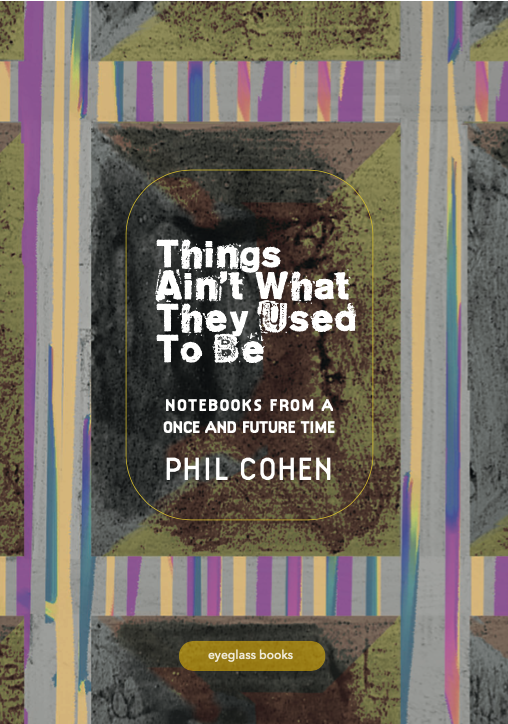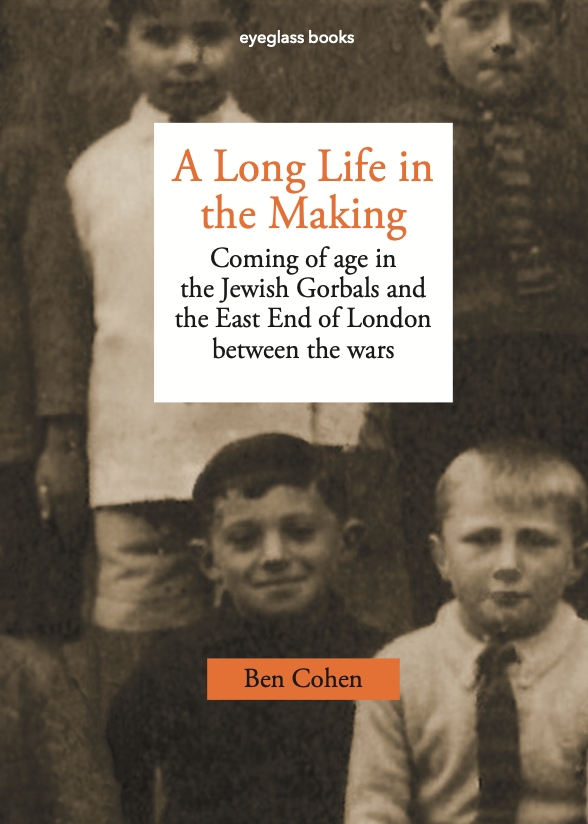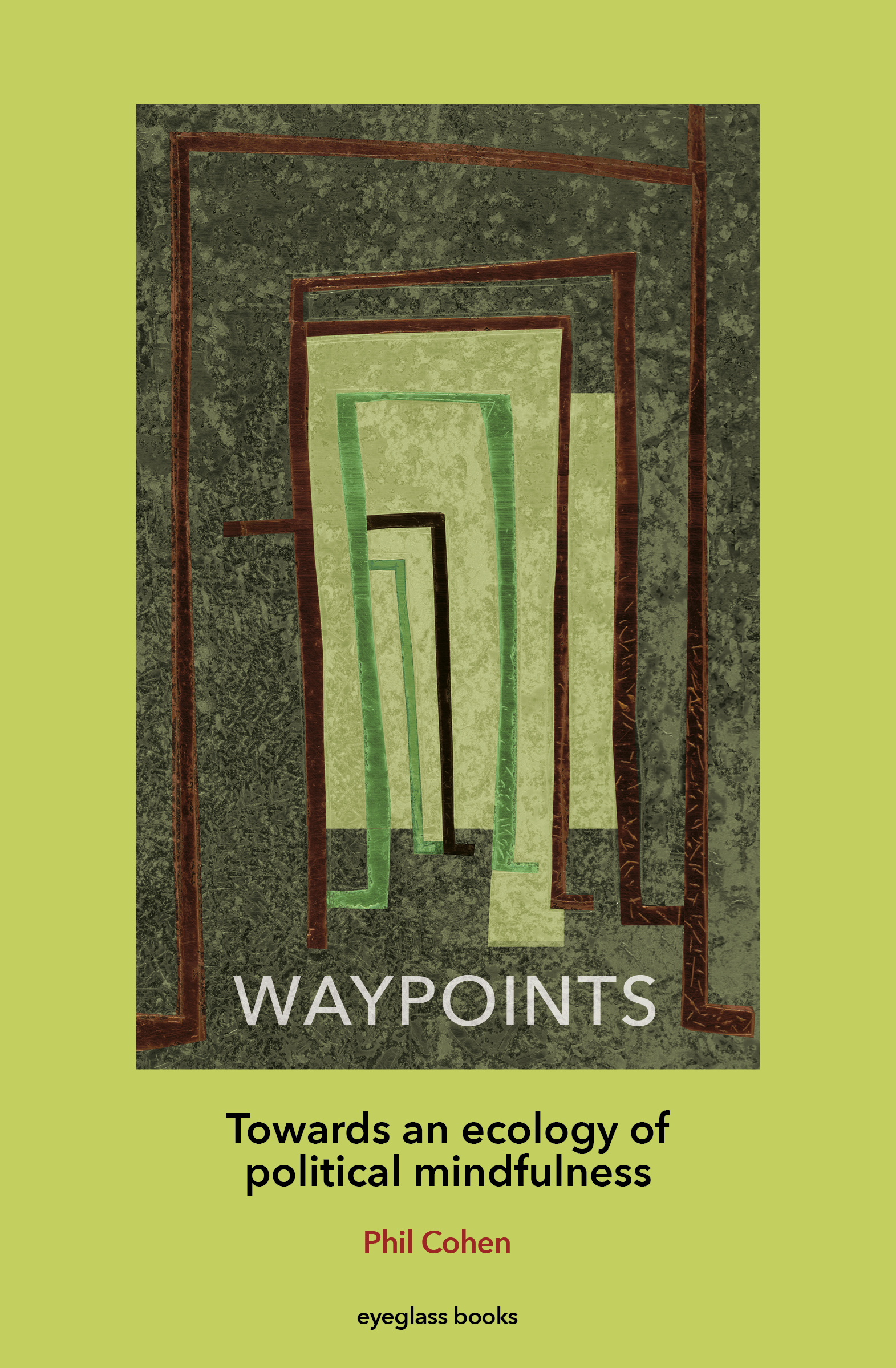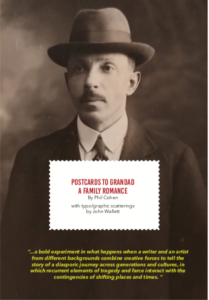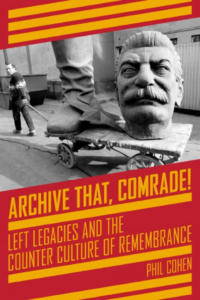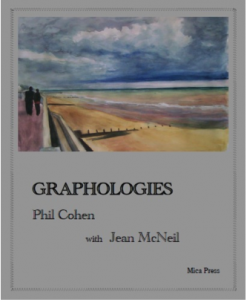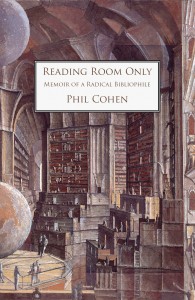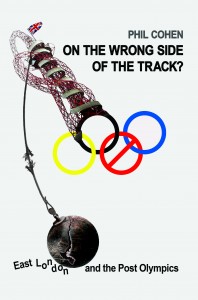Part One : Subtle Dialectics,Crude Thoughts
‘In order to save the Party we had to destroy it’ (with acknowledgement to Bert Brecht)
After the so called uprising of June 23/When business and political leaders /had leaflets distributed /stating that the people/had forfeited their confidence/and could win it back only/by redoubled efforts in another referendum /Would it not be easier in this case /for the government/to dissolve the people/and elect another?/Such a subtle dialectic/Trading places with such crude thoughts.
After the attempted coup of June 28/when members of the PLP/had leaflets distributed/stating that their leader/had forfeited their confidence /and could only win it back/by giving up the ghost/would it not be easier in this case also /to dissolve the membership/and elect a committee of psycho-pomps/to lead the now non-existent party/to a new underworld ?/Such a crude thought/In search of subtle dialectic.
I wrote this poem because I was invited to contribute to an event organised by Momentum in support of Jeremy Corbyn’s campaign for re-election as leader of the Labour Party. I somewhat reluctantly agreed because like many I had become disenchanted by the lack of strategic grasp and sheer incompetence displayed by Team Corbyn. But the request came from the son of long standing friend, a young man who had suffered an unusually protracted and disturbed adolescence but had now found in Momentum a sense of fellowship and a public platform on which he could perform with some confidence.
[expand title=”Read More”]
The event was staged in a music pub frequented by students and hipster types from Corbyn’s Islington constituency. When I pitched up, there were a small group of twenty somethings huddled around the brightly lit stage, most of them, it turned out, the performers and their friends. In between the acts, which comprised some awful doggerel protest poetry and some quite good, but apolitical songs, the MC bellowed slogans into an imaginary megaphone and encouraged the audience to respond as noisily as possible to simulate a mass rally and attract punters in from the street. My friend`s son got up and made a passionate yet considered speech, about how Corbyn`s agenda represented a principle of hope and Momentum was the last chance to build a mass movement against the Tories austerity regime. The audience cheered and hooted their appreciation. At this point the thought of getting up and reading a poem which referred back to a political context and conjuncture beyond most of the audience’s ken seemed suddenly too daunting. As a paid up member of the Groucho Marx tendency ( motto: never join a club that would have you as a member) I was anyway hardly cheer leader material. I did’nt want to be a party pooper and what, after all, did I, or my generation of 68ers have to offer these young people except a glimpse of a political transformation that had seemed possible once upon a time, yet never happened? ‘Les Evenements’ now seem little more than a fairy story for a ‘generation rent’ which tends to regard post war baby boomers as the spoilt beneficiaries- if not the creators- of hip capitalism with our secure professional jobs and pensions, our over- valued houses and our self satisfied radicalism.
What I wrote was a deliberate plagiarism of a famous poem by Bertolt Brecht. The ironically titled ‘The Solution’ was written in 1953 in the immediate aftermath of a popular uprising against the Stalinisation of the GDR regime, and in particular a decision by the central committee of the Socialist Unity Party to lower wages and increase work quotas. The uprising was started by construction workers and lead to mass meetings and factory occupations. It was bloodily suppressed by Soviet tanks, arrests and purges and extra -judicial murders. It led to the first large scale exodus of people from East to West Berlin, and thus contributed to the building of the Berlin Wall. Brecht’s poem satirises a so called socialist government that erects walls around its own people, ostensibly to defend them against being corrupted by capitalism but in reality to protect its own power. Unfortunately there are still people today on the Left in Britain and elsewhere who think that socialism can be created in one caucus by building walls to keep the ideology pure and stop it being contaminated by democratic debate, whether inside or outside the party. Some of them are even in Momentum….
The refrain of ‘subtle dialectics, crude thoughts’ refers to a discussion during the 1930’s between Brecht and Walter Benjamin who were close friends but also intellectual sparring partners. The argument between a playwright and polemicist who wrote poetry and a philosopher who wrote poetic prose, was about the relation between two versions of dialectical thinking within Marxism, Hegelian and materialist, and about the (non)relation between revolutionary theory and practice in the arts. These conversations took place against the background of the rise of right wing nationalism,populism and fascism in Europe as a response to the Great Depression. Brecht admired Benjamin’s ability to do elegant headstands on the high wire of cultural theory, but argued that subtle dialectics was not enough, he needed to get his feet more on the real ground of working class politics; Benjamin, for his part, admired Brecht’s didactic ability to cut through the ideological hype and philosophical waffle and get to the nitty gritty of things, putting into plain words ideas that were on the tip of everyone’s tongue. Crude thoughts- der plumpes denken- in this context have nothing to do with salacious gossip or blue jokes, nor are they simply hand –me – down slogans. They are ideas which crystallise through a process of democratic deliberation and are then put into memorable words.
Today more than ever we need subtle dialectics and crude thoughts to be combined as Stuart Hall did so brilliant in his conjunctural analyses. We need political activists to serve as organic intellectuals who can think on their feet and join in the dance of the mind triggered by collective policy making. (NB I am not thinking of Ed Balls here). And from the other side, we also need to learn from poets how to put into clear and memorable words, what is in the hearts and minds of ordinary people, their hopes for a better, more fulfilled life and their desperation about the lack of real opportunity to realise their more generous ambitions. Yet instead of strategic analysis we are all too often offered a vacuous pseudo- radical rhetoric in which dialectical reason is trapped within an iron cage of academic specialism, written in coded gobbledegook. Just flip through the pages of most peer reviewed journals if you want to see what I mean. At the same time we have the spin doctors and social media gurus who churn out ever more mindless memes in the hope of capturing an ever more evanescent zeitgeist.
The referendum debate and the subsequent post mortem analysis of the Brexit decision is a good case in point. The Left commentariat went in for a good deal of breast beating, fist shaking, finger wagging and straw clutching, a difficult manoeuvre to do all at once, but which some, like Paul Mason and Jeremy Gilbert, managed with great adroitness. There was a general consensus that globalisation was the villain of the piece, and that New Labour had ignored the predicament of those communities who were the losers, who suffered most from de-industrialisation, and who also experienced rapid demographic change with the arrival of large number of economic migrants from the EU. No wonder this erstwhile heartland of Labour support had deserted to UKIP, or in Scotland the SNP! In some accounts the responsibility for this outcome was pitched wider: the political class as a whole, the metropolitan elite, the liberal intelligentsia were all fingered as having retreated into their own cosy cultural bubbles, and shown disdain, indifference or patronising regard for large sections of the lower middle and working classes who did not share their privileged, better educated and decidedly multicultural perspectives on our inter-connected world. At the same time the unholy alliance of Telegraph, Daily Mail and Sun readers who had voted for Brexit were accused ( along with the papers themselves) of suffering from a bad case of xenophobic, if not overtly racist, false consciousness in so far as they blamed immigration, rather than the recession, austerity politics, and neo-liberalism for their deteriorating circumstances.
However In the best of this commentary there was also an awareness that the Brexit vote was symptomatic of a fundamental shift in the tectonic plates of British class society, a shift which had destabilised major institutions in civil society as well the boundaries of the nation state and that this had created a general crisis of political representation which threatened the future, not only of the Labour party, and our disunited Queendom, but Social Democracy itself. So what do we need to rethink about the nature of contemporary class relations in Britain, in the light of that debate and its outcome?
[/expand]
A Different Class
She had a thirst for knowledge/She studied sculpture at Saint Martin’s College/That’s where I/Caught her eye/She told me that her Dad was loaded/I said “In that case I’ll have a rum and coca-cola”/She said “Fine”/And in thirty seconds time she said :
I want to live like common people
I want to do whatever common people do
I want to sleep with common people
I want to sleep with common people
Like you …….
I said : You will never understand/How it feels to live your life/With no meaning or control/And with nowhere left to go/
You’ll never live like common people
You’ll never do what common people do
You’ll never fail like common people
You’ll never watch your life slide out of view
And then dance and drink and screw
Because there’s nothing else to do – Pulp A Different Class
There was one uninvited guest to the Brexit debate, who took centre stage. The ‘white working class ‘is a very recent invention, albeit one which claims a long established pedigree of entitlement. It first emerged in its current revanchist form through a process of convergence between moral panics on both the Left and the Right, starting in the 1980’s but especially since 2007/8, about the advent of a new dangerously dysfunctional underclass, left behind by and, excluded from the benefits of a globalised, knowledge and service based economy, made redundant by the decline of manufacturing and manual labour and squeezed into ever tighter pockets of ever more intense urban and rural poverty by gentrification. Whether ‘WWC’ is demonised as a predatory client of the welfare state, and a reason to roll it back (the Rightist standpoint) or regarded as easy prey for racist and populist demagogues who exploit its resentment and despair to detach them from their historical allegiance to the labour movement (the Leftist standpoint), it is regarded by both sides as a ‘race apart’, having decisively failed the test of modernity.
[expand title=”Read More”]
This characterisation has a long pre-history, of course; Victorian commentators talked about the ‘dangerous and perishing classes’, an ‘urban residuum’, or the’ lumpen proletariat’, and even though the prescriptions as what to do about them differed, there was general agreement across the ideological spectrum, from Marxists and municipal socialists, to liberal reformers and Anglican Tory ‘civilising missionaries’ that this population represented a threat to whatever vision of progress they espoused. The backbone of the Imperial Nation or the Socialist State they would never be…..
This moral topography, mapped out in London so vividly by Charles Booth, made sense of a world in which there were clear cut demarcations in social status and life style within the working class city: between the labour aristocracy and casual labourer or street trader, the skilled and the unskilled, the respectable and the rough; they lived in separate neighbourhoods or streets, they did not socialise or inter- marry, they belonged to different clubs, churches and trade unions; and sometimes, in specific contexts and conjunctures, these distinctions took on an ethnic or quasi racial dimension.
However the landscape of contemporary British class society is no longer like this. Class relations are a site of fluid projections and introjections, still underpinned by structures of inequality, of course, but not only those of wealth and power, but of social, cultural, intellectual and bio-political capital. Class identities have become radically eccentric to themselves, in the sense of being formed in relation to the Other within. Inside every proletarian there is a bourgeois struggling to get out. Inside every meritocrat, an aristocrat. And vice versa. That is why those who live on the other side of the class tracks are such an ambivalent object of fear and fascination. Freud grasped this dynamic far better than Marx. In his essay on the family romance, he shows how poor or abandoned children create imaginary genealogies for themselves, inventing biographies in which they are ‘in reality’ (i.e. in fantasy) offspring of the rich and famous, and have suffered the misfortune of being kidnapped by the poor utterly worthless people who happen to be actually bringing them up. Equally those who actually occupy exalted positions in society often fantasise about the simpler and more authentic lives of the ‘common people’ and engage in a variety of practices, from slumming to social transvestism and trading places in order to vicariously experience ‘how the other half lives’.
Of course you can dismiss all this as yet another example of false consciousness. As in the Pulp song. But I think it has less to do with inverted snobbery, or the politics of envy than a form of projective identification driven by a pervasive and restless sense that something essential is lacking in privileged standpoints, especially where these have been inherited. However these games of trading places have been upset by the fact that the places themselves have become destabilised along with the communities of affiliation which hitherto gave them their anchorage in a moral anatomy of fixed distinction.
Under these conditions, class consciousness is no longer dependent on the intervention of a class based ideology or party to unify and transform a class- in- itself (i.e. as defined by an objective place in the social division of labour ) into a class- for- itself. The very relationality of contemporary class identity undermines the classical Marxist model. Today class relations are formed and re-formed through a trajectory of positive and negative identifications with their avatars. Through these proxies a class- from- itself is reconfigured as a class –to – itself, and vice versa.
In the first, centrifugal moment collective identities associated with becoming working class, via the various apprenticeships offered by the family, school, workplace or neighbourhood, are de-centred and dispersed into more or less transient assemblies of individual citizens /workers /consumers /residents pursuing particular interests, desires, grievances or demands. The narratives of aspiration which sustain these groups either tend to refer to social origins as an obstacle to advancement, something that has to be overcome in order to transform bad beginnings into happy endings ( the triumph over adversity story) or more nostalgically, as a locus of lost solidarities ( the ‘there goes the neighbourhood, story).
However, in a second and centripetal moment, which often occurs as the pursuit of particular quests or claims hits up against the general limits and conditions imposed by existing power structures, these groupings either become atomised and disappear altogether or regroup as the sovereign representatives of People and/or Nation; the sense of heritage, of enacting a social destiny is an important feature in this narrative of aspiration, along with the drive to re-centre the demand for social justice within the body politic as a programme for its democratic transformation.
Working class identity politics thus takes a dual form. The class-from- itself moment is created through a process of allo-poesis, drawing on diverse ideological elements external to it ( eg via social movements and virtual communities of interest) ; in so far as it holds on to principles of solidarity and mutual aid, its avatar is the Multitude; in Robert Putnam’s terms, the multitude provides a platform for bridging capital that enables it to behave pro-actively to minimise the costs and maximise the benefits of globalisation, by building opportunistic partnerships and diverse alliances which reduce the risk of permanent de-stabilisation by market forces. In contrast, the class-to-itself moment reproduces itself from itself through an process of auto-poesis that emphasises principles of self reliance and self sufficiency embodied in its own avatar- the Tribe. This is a reactive strategy which develops bonding capital, good for building prides of place and empowering collective memoryscapes for example around street gangs, matrilocal kinship, community heritage projects or NIMBY urbanism as a defence against the de-territorialisation of identity and the disruption of the life course resulting from the chaotic synchronicity of global capitalism. At the same time it is a recipe for the elaboration of a narcissism of minor difference, where to live in the wrong street, support the wrong football team, wear the wrong clothes, or go to the wrong school is to find yourself a pariah within what is notionally a working class community.
How does this somewhat abstract schema work concretely in forming class identifications? Here are a few examples from recent history. Let’s start with the petit bourgeoisie, specifically family businesses and the shopocracy – and remember Mrs Thatcher came from a line of grocers. The family enterprise seeks to reproduce itself from itself, it perceives class relations as kinship relations, and vice versa. A line is drawn between black sheep ( the enemy within) and those groups to which there is a basic sense of kinship or family resemblance (our kind of people). Alliances are developed on this ontological basis. The tribe becomes an agency of amoral familialism, blood is always thicker than elective affinities, and the multitude is made up of all the little people who are excluded from the big Battalions of Capital and Labour. Some other brief examples : The technocracy is constituted from every class and thus considers itself ‘above class’; its project of social engineering seeks to dissolve class relations into administrative ones, managed through specific technologies of social control which it designs. The traditional intelligentsia formed through the inheritance of intellectual and cultural capital, reads class relations through the prism of cultivated knowledge and divides the world into those who have good taste or intelligence ( themselves and their patrons) and the vulgar( the bourgeois and the common people) who lack both. In contrast to this aristocracy of learning, the modern professional is reproduced through extended scholarisation, and a meritocratic career structure, its perspective maps class relations on pedagogic ones, making the central distinction between the qualified expert/educator –the subject who knows-, and the untutored mass. The landowning aristocracy uses its patrimonial inheritance as a paradigm of class relations, drawing the line between those with breeding and those who merely breed; the artisanate and labour aristocracy construct a magical consanguinity of labour power, whose referential model is the patrimony of skills transmitted through closed apprenticeship enabling this class fraction to be both from and to itself.
These social imaginaries offer complimentary ways of putting Humpty Dumpty back together again by creating a more or less stable equilibrium between the centrifugal and centripetal drives of class identification. Neither Multitude nor Tribe heal the hidden injuries of class. The first deals with the anxiety of class influence through the incorporation and sometimes neutralisation of class differences. The second operates through their disavowal, foreclosing the opportunities opened up by the loosening of the class template by re-iterating an aboriginal identity.
Perhaps the most important aspect of this process for understanding class in post Brexit Britain is its relationship to modernity. Here we can distinguish between two trajectories, the first focused around a more or less techno-utopian future ( viz the Smart City agenda ), the other on a more or less idealised past ( Building Jerusalem/Destroying Babylon). The first project involves a kind of proto-modernism : modernity still imagined as a force of progress, in which the past gives way to the present as an open horizon of future possibility, without for all that enabling modernity to coincide with itself. The second project is retro-modernist, it treats modernity as an unrealisable, if not undesirable dream, something which can only be grasped in retrospect, or is only available as a retro-fit. In this scenario the past is idealised and split off from an abhorrent present and an unimaginable or dystopian future. Again neither version of modernity resolves the problematic which produced it.
To summarise the argument so far: contemporary forms of class consciousness are not based on the expression or frustration of some pre-existent ‘ rational class interest’ but emerge in and through the oscillation between two equally transient moments of incipient class identification , which however remain embryonic, prototypes of some yet-to-be- realised ideal, whether regressive or progressive. To extrapolate from this unstable matrix a solid social entity such as ‘the white working class’ or ‘the precariat’ and imbue it with a singular voice, a common culture and concerted agency, requires a strenuous effort of sociological imagination, if not wishful thinking, on the part of those dedicated to the preservation of the ancien regime of binary class politics .
However this figuration of WWC is not nearly as stable as it is made rhetorically to seem; it comprises less a phalanx of angry citizens on the march than an army of zombies, trapped between two equally untenable embodiments as a class from and to itself; in fact WWC bears an uncanny resemblance to Doctor Frankenstein’s ‘monster’, stitched together from a body- politic- in – pieces ( all that remains of a once mighty labour movement), and attaining some semblance of indivisibility only through the colour of its skin.
Under the imprimatur of Brexit we have seen what we might now call the DoubleYouDoubleYouSee re-composed into a unitary being, native to these Disenchanted Isles, by being placed in juxtaposition to its Other Scene, inhabited not just by people of colour, but by all who come to these shores without a cultural passport to enter its promised heartland. Within this framing the now aboriginal working class get to play Tribe (at last at home in and for itself), while Johnny Foreigner is cast as a to- and- fro-ing Multitude. An exact inversion/ transposition of class into more or less racialised ethnic relations. This move is facilitated by the familiar device of setting up a zero sum game, in which one side’s gain (in jobs, housing, education and social amenity), is always the other’s loss and at their expense The rules of the game are, of course, rigged, thanks to conspiracy theory, so that Multitude always trumps Tribe, the ‘indigenous’ always lose out and so end up as proverbial ’strangers in their own country’, in a paradoxically predictable switcheroo.
The rival memes of the Remain and Leave Campaigns dramatised the splitting apart of working class identity politics I have been discussing. ‘Better Together’ evoked unconsciously and in a suitably displaced form the lost solidarities of the labourhood, now better enunciated by urban multicultures; ‘Take Back Control’ carried a residual echo of working class syndicalism and its now hollowed out forms of territoriality, but transposed into a cartography of exclusion drawn around the fault lines of religion and race and inscribed onto the physical geography of anglo-ilishness.
Yet we still have to ask why and how far did the groups interpellated by this stratagem actually recognise themselves in the phantasmagoric figuration of themselves offered by the two campaigns? How come a ‘silent majority’ suddenly find their collective voice as a ventriloquist’s dummy operated by a counter elite? Equally how much was Remain crippled by it fear and sometimes loathing of its own formulation of the WWC, whereas the Brexiteers could mobilise it as the authentic voice of People/ Nation and use it to haunt the corridors of afflicted power with the threat of eviction from privileged office?
To answer these questions we have to understand more about back story of class relations in Britain. In the second of these articles I will try to show how living labour power has been split at the root, being variously constituted as the Promethean backbone of the nation and as an abject race apart. I will look at how this duality shaped the emergence of manual labourism from a home grown culture of blackface, featuring miners, mummers and sweeps in Victorian times, until finally, with de-industrialisation and the decline of this culture in the second half of the 20th century, a space of representation opened up in which populism and communitarianism could compete and find common ground in a project to rip off the black mask and reveal the white skin beneath. Can we nevertheless detect in this trajectory some uncommon ground on which what is left of the British Left could remake its relationship to the working classes in a more positive way?
[/expand]
Indicative Reading
Anthony Barnett Blimey! It Could be Brexit Open Democracy 2016
Luc Boltanski and Eve Chiapello The New Spirit of Capitalism Verso 2015
Phil Cohen ‘Labouring Under Whiteness’ in Displacing Whiteness (edited Ruth Frankenberg ) Duke University Press 1997
Klaus Eder The New Politics of Class :Social movements and cultural dynamics in Advanced Society Sage 1993
Geoffrey Evans and James Tilley The New Politics of Class : The Political Exclusion of the British Working Class Oxford University press 2017
Justin Gest The New Minority :white working class politics in an age of immigration and uncertainty Oxford University Press 2016
Bruno Gulli The Labour of Fire : the Ontology of Labour between economy and culture Temple University Press 2005
Michael Hardt and Toni Negri Multitude: War and democracy in the Age of Empire Penguin Books 2004
Martijn Konings The emotional logic of capitalism : what progressives forget Stanford University Press 2015
Michel Maffesoli The time of the tribe : the decline of individualism in mass society Sage 1996
Robert Putnam Democracy in Flux:the evolution of social capital in contemporary society Simon and Schuster 2015
Ben Rogaly and Becky Taylor Moving Histories of Class and Community Palgrave 2009
Mike Savage Social Class in the 21st century Penguin Books 2015
Richard Sennett and Jonathon Cobb The Hidden injuries of Class Faber 1972
Kjartan Sveinsson Who cares about the White Working Class? Runnymede Trust2009
Erik Olin Wright Understanding Class Verso 2015
